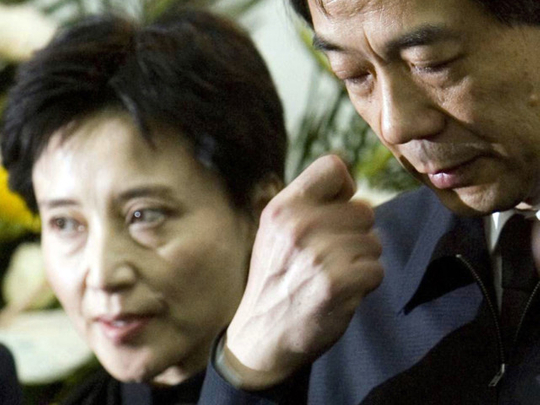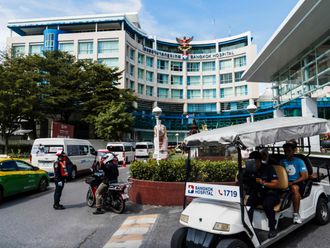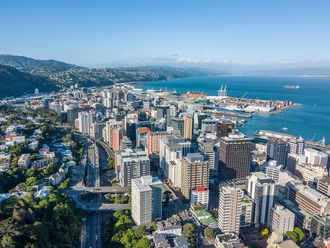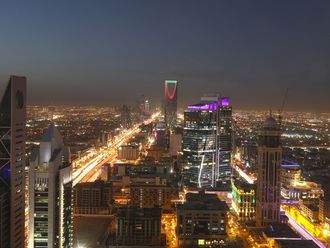
BEIJING: Once a rising political star famous for busting gangs and reviving Maoist ideals, China’s Bo Xilai suffered a dramatic fall from grace that on Friday saw authorities announce he would “face justice” on a range of charges.
The charismatic 63-year-old had been tipped for promotion to China’s top decision-making body before a key aide fled to a US consulate in February with the explosive claim that Bo’s wife had murdered a British businessman.
That set off a cascade of events that led to a murder conviction for his wife Gu Kailai and the jailing of his aide Wang Lijun for attempting to cover up the crime.
China announced in April that Bo had been suspended from the Communist Party’s powerful 25-member Politburo and placed under investigation for violating party discipline - usually code for corruption - but his exact fate remained unknown.
But that now appears sealed with Friday’s announcement by the official Xinhua news agency that he has been stripped of his party membership and would face charges over allegations including abuse of power and corruption.
Bo will next likely face a highly anticipated trial and verdict likely to end in a jail sentence for the one-time leader.
Bo, a former commerce minister, was known for his suave and open demeanour, which was seen as refreshing in a country where leaders are often rigid and emotionless in public.
But his open lobbying for promotion coupled with his “princeling” status as the son of a hero of China’s revolution irritated some fellow politicians.
“He’s very open, very confident, very charismatic and that’s not the way most Chinese leaders behave and that is not the way they feel comfortable with their peers behaving,” said Patrick Chovanec, a professor at Tsinghua University.
Bo’s revival of “red” culture in the southwestern municipality of Chongqing - including sending officials to work in the countryside and pushing workers to sing revolutionary songs - drew both accolades and concern.
He also set about fighting graft when he came to power in Chongqing, in a crackdown that saw scores of officials detained and executed, their lurid secret lives exposed.
But behind Bo’s smiling demeanour lurked the tragedy of his teens during the Cultural Revolution, a decade of deadly chaos launched by Mao Zedong in which students turned on teachers and officials were purged.
His father Bo Yibo was a revolutionary who fell from grace and was imprisoned and tortured during the turbulent period. His mother was beaten to death and Bo Xilai himself spent time in a labour camp.
But when Mao died and reformist leader Deng Xiaoping took over, Bo Yibo was rehabilitated and became one of the most powerful men in China, bestowing on his son an impeccable family pedigree that long protected him.
Bo took a master’s degree in journalism - an educational background that stands out in the crowd of engineers and scientists who make up China’s political elite.
For nearly two decades from 1985, he was based in China’s northeastern rustbelt, first as mayor of Dalian, a decaying port city that he is credited with transforming into a modern investment hub.
He then became governor of Liaoning province, where Dalian is located, and in 2004 entered the Beijing limelight as China’s commerce minister, dazzling foreign counterparts with his modern, can-do attitude.
“He was a reformer and wanted to see things change,” said David Zweig, a Chinese politics expert at the Hong Kong University of Science and Technology.
During that time, Bo hosted many foreign visitors including EU Trade Commissioner Peter Mandelson, with whom he appeared to be on genuinely friendly terms.
Outside observers said his move to Chongqing, a metropolis of more than 30 million people, would propel him out of the limelight, but his anti-mafia and Maoist revival campaigns proved them wrong.
However, those who had praised Bo as relatively liberal soon grew disillusioned - particularly with his corruption crackdown, which many say was carried out with contempt for the law.
Bo is thought to have spent the last few months under house arrest as the drama involving his wife Gu’s murder of British business Neil Heywood played out, ending in a conviction in August.












